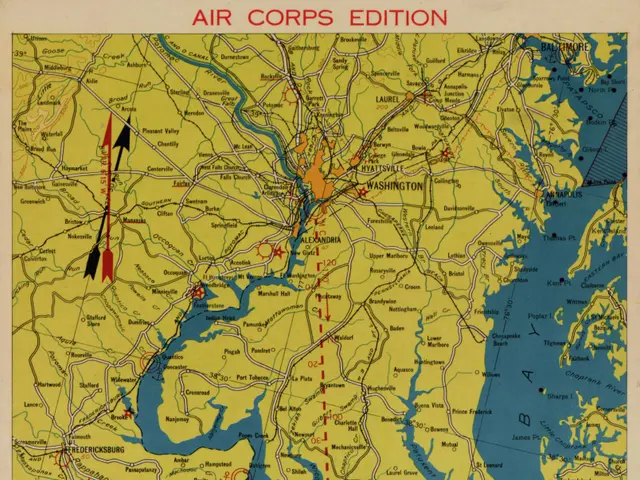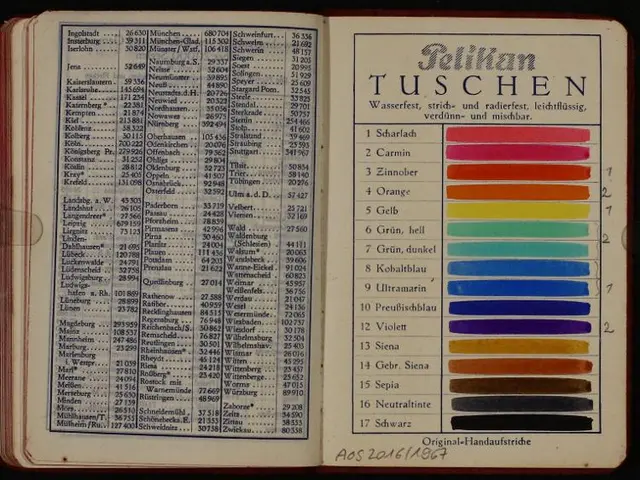Trade agreement between Donald Trump and Britain: assessing impacts on automobiles, livestock, and agricultural products.
In a groundbreaking announcement, the leaders of the US and the UK heralded the recent trade pact as a historical milestone. Yet, experts issued a note of caution, as tariffs on exports to the US for the UK remain higher than before the current administration took office.
While the worldwide 10% tariff imposed by Trump in April remains in place, there were significant concessions made on auto and steel tariffs. The UK successfully negotiated lowered rates for these sectors, which were increased by Trump earlier in 2025.
In exchange, the UK granted the US broader access to industries such as beef, ethanol, and industrial products, sparking concerns about potential flooding of the UK market with US exports. The negotiation process avoided delving into politically contentious issues, such as altering UK digital services tax, opening healthcare markets to US companies, or amending food standards rules to accommodate products that were previously prohibited — such as chlorine-washed chicken and hormone-treated beef.
Mattia Di Ubaldo, a principal research fellow in international trade at the University of Sussex, observed that the deal left the UK in a disappointing position compared to a year ago. However, it gave the UK a competitive advantage over other countries in certain sectors.
Economists weighed in on the agreement, indicating that while it would offer relief to affected industries, it wouldn't materially impact the overall economic outlook in either the US or the UK. Some even suggested that the US itself might struggle to secure meaningful trade deals with other nations.
In the automotive sector, British car executives generally welcomed the deal that reduced a potential tariff of 27.5% down to 10% for the first 100,000 cars shipped from the UK. This figure represents almost all of the 101,870 vehicles exported to the US in 2024, according to the Society of Motor Manufacturers and Traders.
Auto executives expressed cautious optimism, with some hinting that further negotiations could ultimately lead to even lower tariffs in the future. The UK's car industry remains heavily reliant on exports within the European Union, but the US remains the largest market for high-end brands such as Jaguar Land Rover's Range Rover, Bentley, and McLaren.
In the aerospace sector, Rolls-Royce secured a deal for tariff-free engine exports to the US. However, executives expressed hope that all aerospace parts would eventually become exempt from tariffs. The industry has been grappling with increasing costs due to Trump's ongoing trade war, with these costs trickling down through integrated supply chains.
Agriculture and farming industries responded with mixed feelings, with some welcoming the commitment to maintain British food standards and securing reciprocal access for beef trade. Others warned that increased ethanol imports could negatively impact UK farmers. The White House reported that the agreement would "significantly expand" US market access in the UK, with a marked growth in ethanol and agricultural exports.
Weeks after the UK government intervened to save Britain's last remaining steel blast furnaces, the industry welcomed the deal to scrap tariffs for US exports. The US is the second-largest market for steel exports from the UK, after Europe, and the agreement aims to strengthen the strategic relationship between the two nations.
Lastly, the US agreed to offer preferential treatment on any tariffs imposed in relation to national security investigations regarding pharmaceuticals and semiconductors. The accord sets the stage for a potential UK-US technology partnership in fields like biotech, life sciences, quantum computing, nuclear fusion, aerospace, and space in the future.
Article reporting by Peter Foster, Kana Inagaki, Sylvia Pfeifer, Madeleine Speed, Michael Peel, Gillian Plimmer, Sam Fleming, Delphine Strauss, and Philip Georgiadis
- The recent trade pact between the US and the UK, despite being hailed as historical, has been met with caution due to the higher tariffs on UK exports to the US compared to before the current administration.
- The agreement resulted in significant concessions on auto and steel tariffs, lowering rates for these sectors, but concerns were raised about potential flooding of the UK market with US exports in sectors like ethanol.
- The outlook for the UK's business sector shows it is in a less competitive position compared to a year ago, yet it provides a competitive advantage over other countries in certain sectors, such as bioethanol.
- Thursday's agreement provided relief to affected industries, particularly the automotive and aerospace sectors, but it didn't materially impact the overall economic outlook for either the US or the UK.
- While the US-UK deal set the stage for a potential technology partnership in fields like biotech, life sciences, and space, weather conditions in the sports field remain separate and unrelated to the terms of the agreement.








